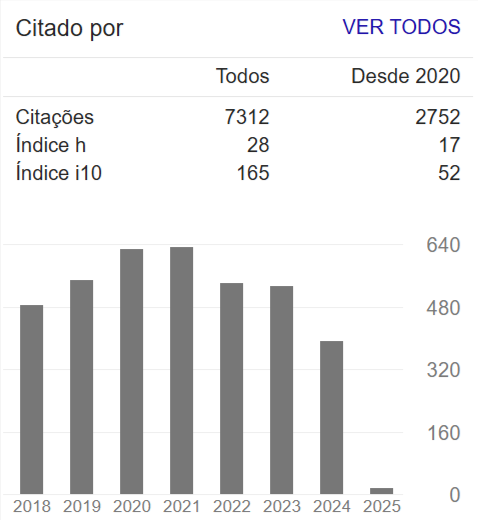EFEITO DA MISTURA E24 COMPARADO À GASOLINA PURA NA ESPESSURA DA FASE LIVRE EM POÇOS DE MONITORAMENTO
Resumo
O cálculo de recuperação de gasolina no aqüífero está baseado na relação entre as espessuras do combustível no poço de monitoramento e no meio poroso. O etanol como aditivo a gasolina afeta esta disposição na franja capilar. Neste artigo está descrito o efeito do E24 (76% gasolina, 24% etanol por volume) em comparação à gasolina pura na franja capilar e na correspondência de espessuras de fase livre no aqüífero e poço de monitoramento. Para esta demonstração foram utilizadas duas colunas de acrílico preenchidas por microesferas de vidro, que produziu as diferenças visuais e associações em situações de campo. Os resultados indicam que a elevação da franja capilar foi menor no E24 quando comparado à gasolina. Fato associado ao efeito cossolvente do etanol sobre a tensão interfacial; a formação de fase livre no E24 no poço de monitoramento foi anterior à da gasolina; o E24 alcançou o limite físico do microcosmo em tempo anterior ao da gasolina; a migração do E24 no poço ocorreu em menor tempo, indicando que vazamentos em subsuperfície podem ser detectados mais rápido se os poços de monitoramento forem instalados nos limites do sítio; a relação de espessuras de fase livre no poço e no aqüífero foi de 4 vezes para E24 e de 2,6 vezes para gasolina. Isto indica que para projetos de remediação de E24 baseado na relação de características da gasolina pode superestimar o volume de produto recuperado (extraído do aqüífero) em 20%.

















